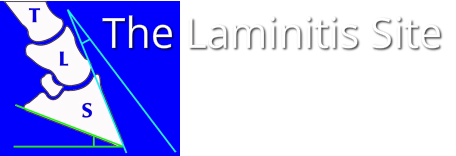Miller MA, Moore GE, Bertin FR, Kritchevsky JE
What's New in Old Horses? Postmortem Diagnoses in Mature and Aged Equids
Vet Pathol. 2016 Mar;53(2):390-8. doi: 10.1177/0300985815608674. Epub 2015 Oct 12
Of 241 equids aged 15 years or more at autopsy, 12.9% had disease of the pituitary gland as the cause of death or euthanasia. "PPID was the most common specific diagnosis, based on the postmortem presence of hyperplasia or adenoma, and was the reason for euthanasia in 47.7% of 65 equids with PPID. The most common nonpituitary causes for death or euthanasia in equids with PPID were colic, lameness, cancer, and spinal cord disease. Coexisting conditions in equids with PPID that were not considered the basis for euthanasia included neoplasms, infections, lameness, and recurrent airway obstruction."
Glover CM, Miller LM, Dybdal NO, Lopez A, Duckett WM, McFarlane D
Extrapituitary and Pituitary Pathological Findings in Horses with Pituitary Pars Intermedia Dysfunction: A Retrospective Study
Journal of Equine Veterinary Science - March 2009 Vol. 29, Issue 3, Pages 146-153
Organs (lungs, kidney, liver, heart, pituitary, thyroid & adrenal glands)from horses with PPID were compared to normal horses. Horses with PPID had changes in liver and adrenal glands, bronchiolitis (lungs), proliferative glomerulopathy (kidney), myocardial lipofuscinosis and fibrosis (heart).
J Am Vet Med Assoc. 2004 Apr 1;224(7):1123-7.
Evaluation of suspected pituitary pars intermedia dysfunction in horses with laminitis.
Donaldson MT, Jorgensen AJ, Beech J.
8 horses suspected of having PPID were euthanised - 5 because of laminitis, 1because of RAO, 1 because of septic tenosynovitis secondary to a foot abscess, and 1 because of ataxia. Post mortem examination of 6 horses revealed: adrenocortical hyperplasia (4/6 ), gastric ulceration (3/6 ), tapeworm infestation (2/6), pulmonary abscess (1/6), jugular vein thrombophlebitis (1/6), carcinoma of the bladder (1/6). NB these findings may have been incidental to the PPID.

 RSS Feed
RSS Feed